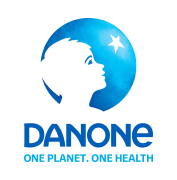To deliver on our mission, we depend on nature. Food has a critical role to play at the forefront of many environmental threats and solutions, from climate change to biodiversity and water protection. Our ambition at Danone is to make food a solution that preserves and regenerates nature, while strenghtening farming resilience. One way we’re doing this is by setting ambitious targets, e.g., to reduce methane emissions from fresh dairy, being the first company, in 2023, to do so.
Preserving & regenerating nature
Nature

Driving climate action: cutting emissions, transforming food systems, building resilience

Driving climate action means focusing on key priorities: accurately measuring and reducing greenhouse gas emissions, transforming food systems to lower their environmental impact, and building resilience to adapt to climate challenges. These efforts are essential to fostering a sustainable and resilient future.


























































